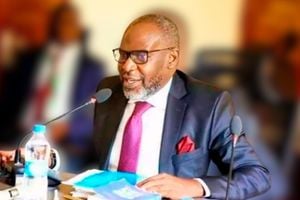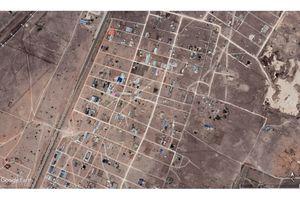Lobbies: Police should not investigate killings where colleagues are implicated

A police officer aims a teargas canister Anti-Finance Bill at protesters on June 25, 2024 on Kenyatta Avenue in Nairobi.
What you need to know:
- Kituo cha Sheria said the police and military continue to be implicated in the disappearances and killings of individuals, but the government has denied responsibility for these abuses.
The government and civil society organisations clashed in court on Thursday over how police-instigated killings should be investigated.
At the heart of the argument before High Court judge Lawrence Mugambi was a point raised by Kituo cha Sheria that there were overlapping mandates between the Directorate of Criminal Investigations (DCI) and the Independent Policing Oversight Authority (Ipoa) in investigating some deaths.
Lobby groups including Kituo Cha Sheria, International Justice Mission (IJM), Haki Africa and the Law Society of Kenya (LSK) argued that the mandate to investigate cases of abductions, deaths and serious injuries at the hands of the police should be given exclusively to the Ipoa.
In their petition, they argued that parallel investigations by the police and Ipoa would lead to cover-ups or shoddy investigations.
But Attorney-General (AG) Dorcas Oduor rejected the petition, saying it was based on emotion, largely vague and flawed.
According to the AG, the police were in no way fighting Ipoa, as the Constitution requires the police to investigate such crimes, and the civilian-led authority does not have the capacity to investigate cases of enforced disappearances and extrajudicial killings.
Judge Mugambi will deliver his verdict on March 6, 2025, and on that day the lobby groups will know whether they have persuaded him to end the overlap in investigations.
Arguing for Kituo cha Sheria, lawyer John Khaminwa said cases of extrajudicial killings and enforced disappearances continued to be reported, but the government was doing little to curb the situation.
“Ipoa is the only body mandated to investigate disappearances and deaths as a result of police action,” Dr Khaminwa submitted.
The lobby said the police and military continue to be implicated in the disappearances and killings of individuals, but the government has denied responsibility for these abuses.
The veteran lawyer said that in most cases, the National Police Service (NPS) has taken on the role of investigating crimes committed by the police themselves, a fact that has highly compromised the partiality of investigators and is in itself a conflict of interest.
According to Kituo Cha Sheria, the police are responsible for investigating crimes under sections 24(e) and 35(a) and (j) of the National Police Service Act. On the other hand, under sections 6(a) and 25 of the Independent Policing Oversight Authority Act, the IPOA is responsible for investigating crimes committed by the police.
As such, there is an overlap in the mandate of the DCI and the Ipoa to investigate extrajudicial killings and enforced disappearances.
“There is also an apparent conflict as the police cannot effectively investigate extrajudicial killings and enforced disappearances alleged to have been caused by the police,” Kituo cha Sheria said.
Apart from giving the IPOA the exclusive mandate to investigate the alleged crimes, the lobby groups want the court to compel the police to provide the official number of complaints of extrajudicial killings and enforced disappearances from 2010 to date.
“The petitioners state that apart from the lack of accountability by the government, the state has failed to come up with legislation that criminalises and prescribes sentences for the crime of enforced disappearances,” Kituo cha Sheria said.
According to the lobby, the government's failure to enact a law on enforced disappearances in Kenya and to ratify the International Convention for the Protection of All Persons from Enforced Disappearance has resulted in a lack of access to justice and violates the right to a fair hearing.
On Thursday, Deputy President Kithure Kindiki referred to the disappearances in his assessment of his work at the Interior ministry.
“I pray that my successor will build on the gains we made and will succeed to roll back the emerging reports of mysterious disappearances, abductions and femicide. I have handed over the responsibility of cracking down on those emerging reports of crime, and I wish him well and I know he will succeed,” he said.
The advocacy groups cited Human Rights Watch reports on extrajudicial killings and enforced disappearances.
They said that in 2016, Human Rights Watch documented 34 cases of enforced disappearances and 11 cases of extrajudicial killings. And in 2017, the organisation found that police and armed gangs killed more than 100 people during the prolonged election period.
Kituo cha Sheria added that in 2018, human rights groups documented at least 267 cases of extrajudicial killings by police.





